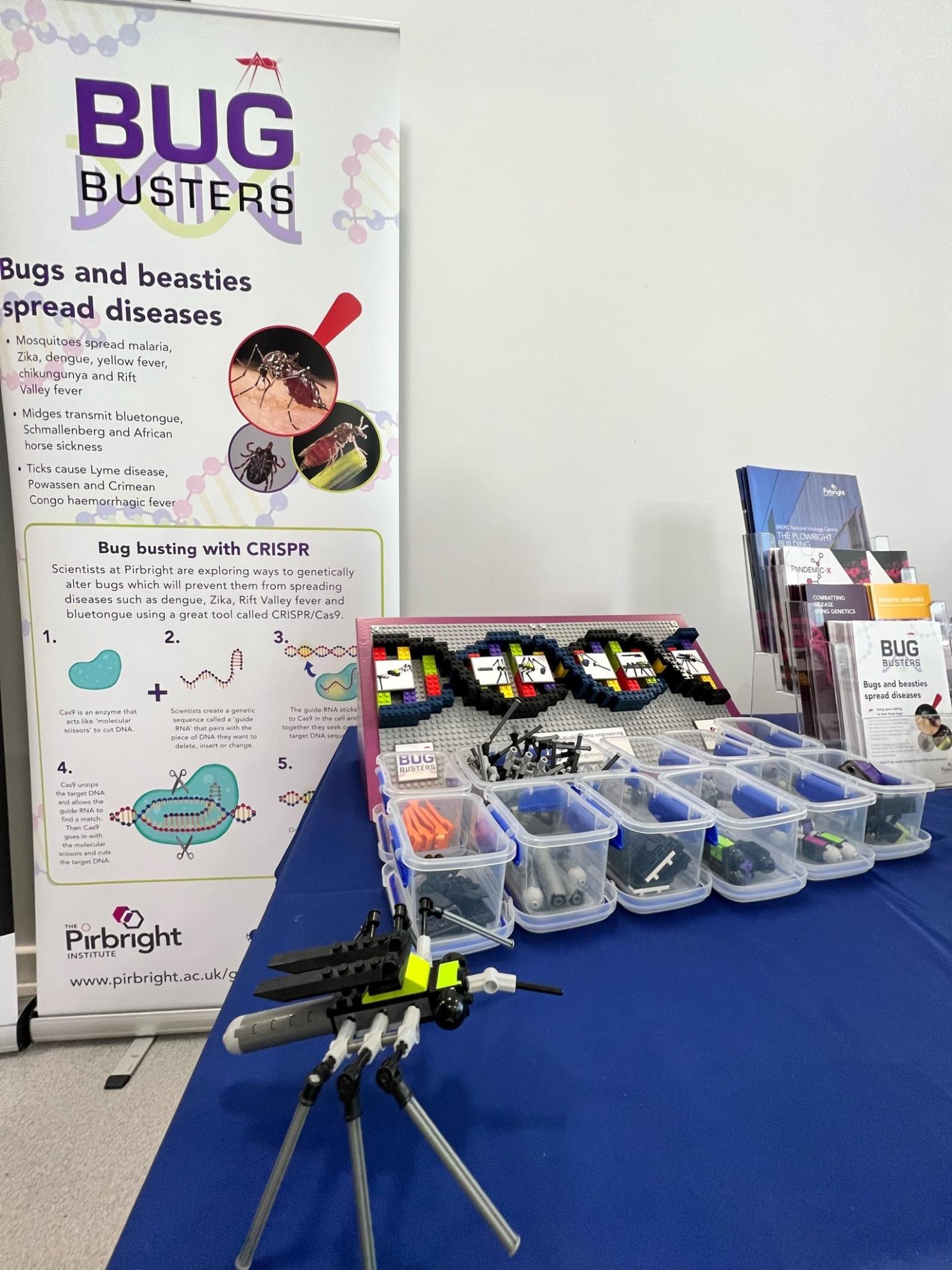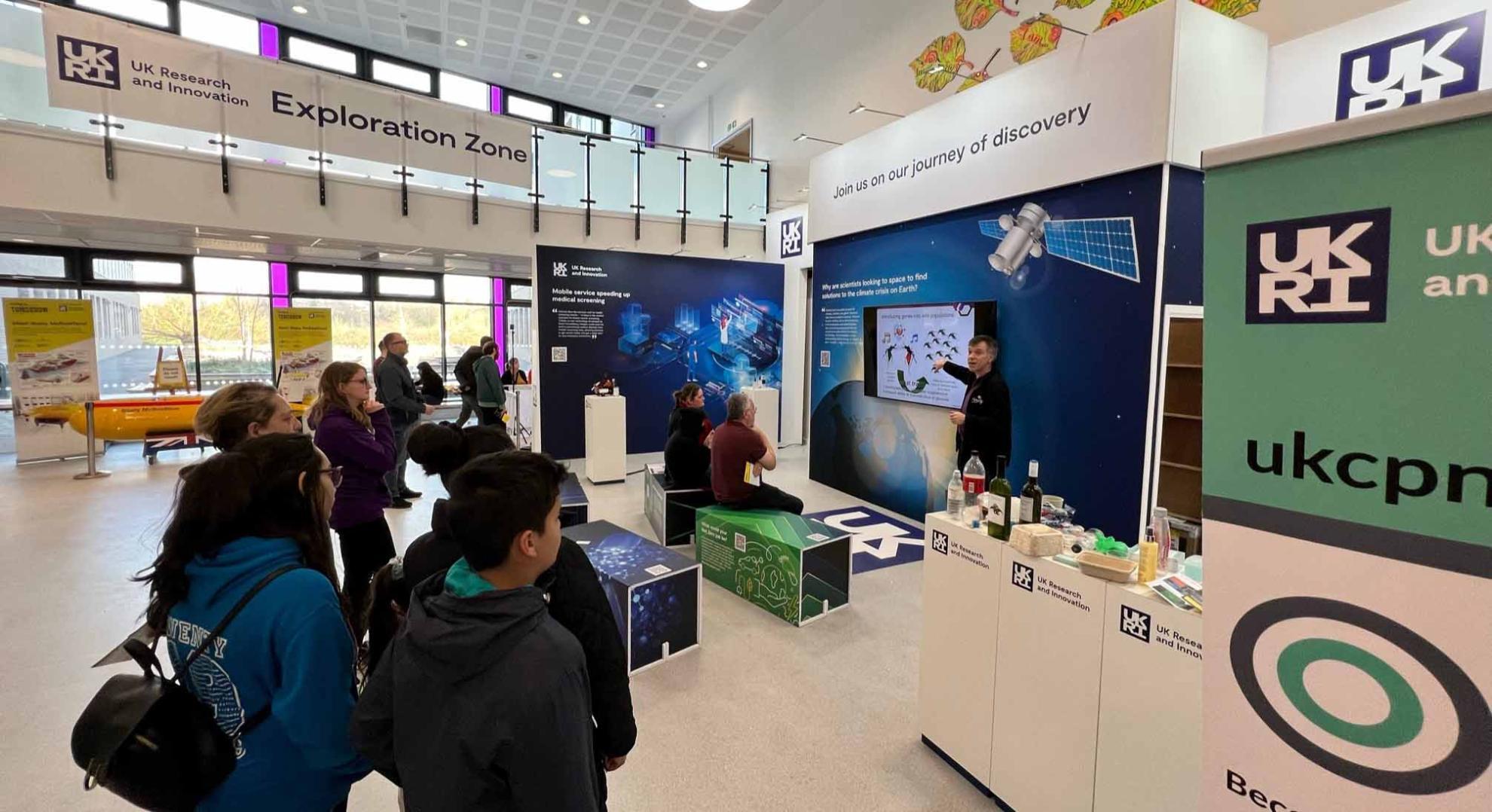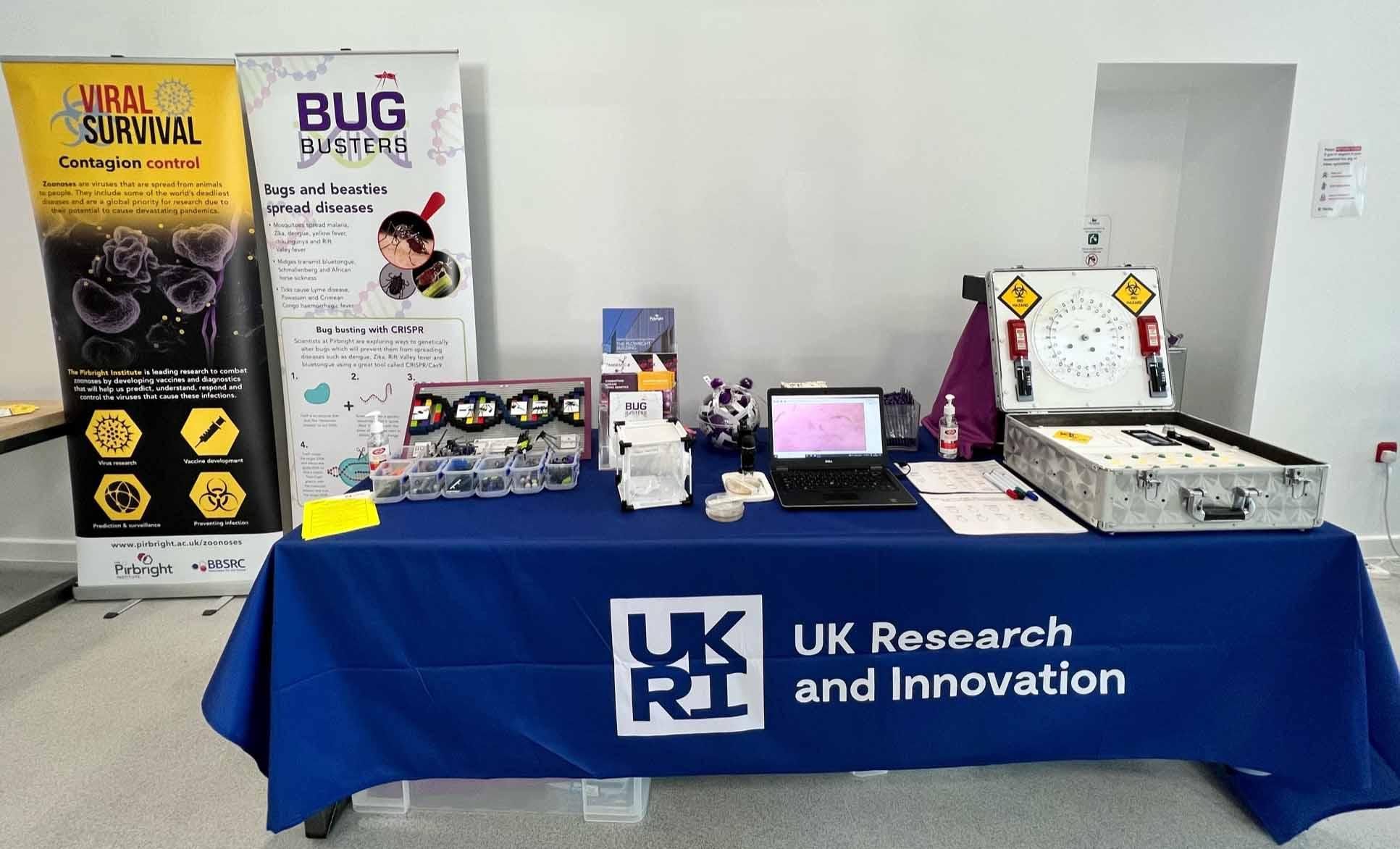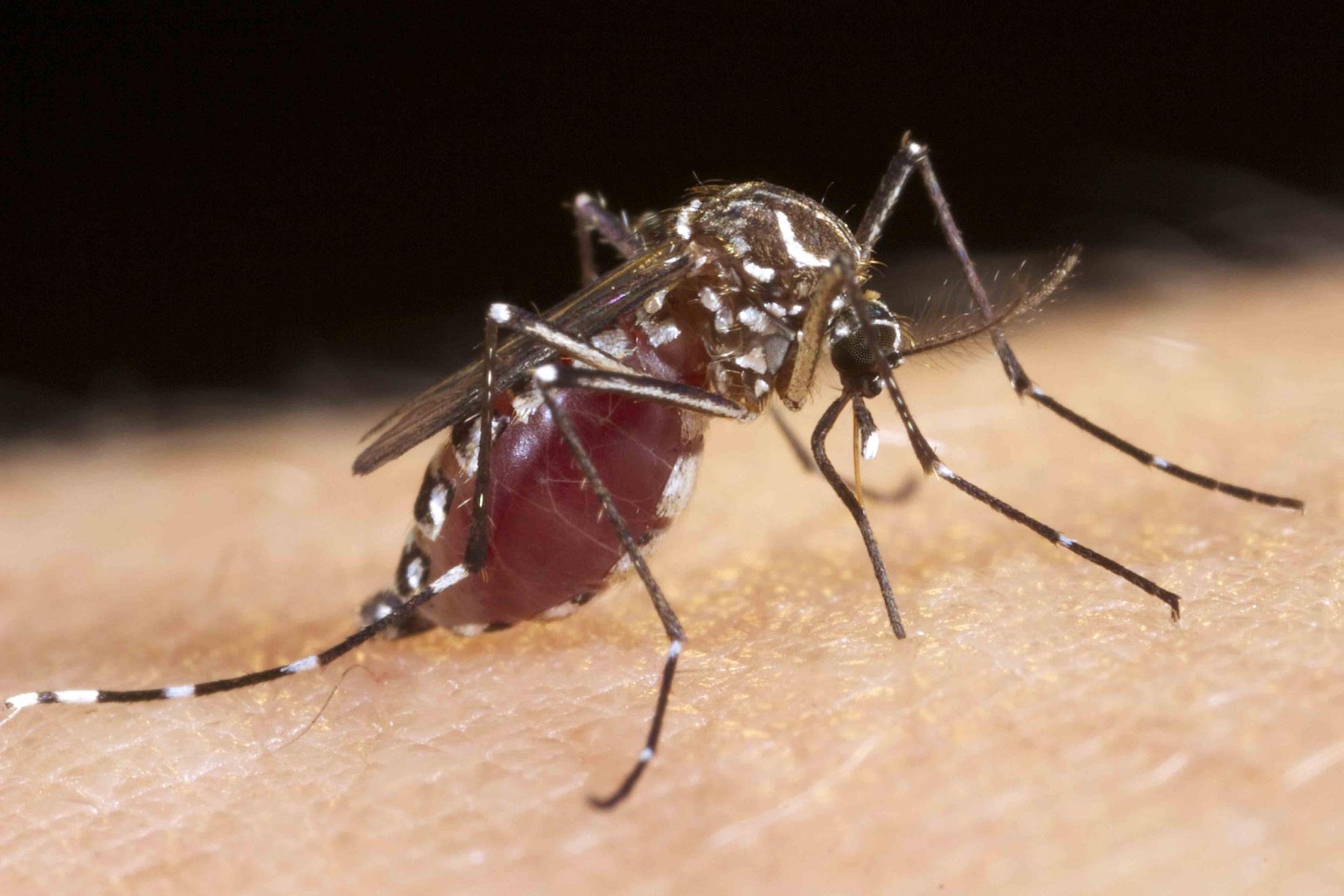Last week The Pirbright Institute was back on the road, sharing our science with the public and inspiring potential scientists of the future at the Festival of Tomorrow in Swindon.

Bug Busters LEGO mosquito builder
The two-day event celebrated the wonders of science and technology and aimed to share knowledge and research that could shape the future.
In partnership with UK Research and Innovation (UKRI), the Communications Team and volunteers from across the Institute showcased Pirbright’s world leading research. Our interactive stand created a real buzz on both days, with some visitors returning on Saturday to try the activities again!
The exhibits included our popular ‘Bug Busters’ LEGO mosquito challenge, where visitors were able to build and modify their own LEGO mosquitoes. Visitors, guided by our volunteers, built a mosquito and learned about how gene editing using CRISPR/Cas9 could help control the spread of mosquito-borne diseases like Dengue or Zika. Children of all ages (and many adults) enjoyed playing with the LEGO while understanding the importance of Pirbright research to control diseases in humans and animals.

Parent and child cracking the Viral Survival containment box
Our ‘Viral Survival’ containment box was also a big hit. Visitors tried to crack codes to find out which viruses have the potential to cause the next pandemic. Visitors used their problem-solving skills to complete a series of puzzles to identify an unknown virus. The COVID-19 pandemic has taught us all a lot about how viruses spread and their potential to cause pandemics; this activity got children and adults talking and thinking more about the threats from emerging viruses and how to control them. It also helped them to understand how and why scientists need to identify new and emerging viruses.
Another big draw was live midges and midge larvae wiggling under our digital microscope! Festivalgoers learned about the life cycle of midges, how they spread disease and how we use them in our research.
Visitors were able to explore the different ways scientists can detect, understand, prevent, and respond to disease and how this all links to Pirbright’s research.
To complement the activities, Pirbright’s Professor Luke Alphey head of the Arthropod Genetics group gave an engaging talk highlighting his group’s work genetically modifying mosquitoes to prevent disease transmission and protect large populations of people from disease.

Professor Luke Alphey presenting his group's mosquito research
If you missed us this time, we will be at the Royal Society’s Summer Science Festival 2022 this July with more interactive exhibits which will allow you to step into the shoes of scientists and become a real ‘Disease Detective’!


